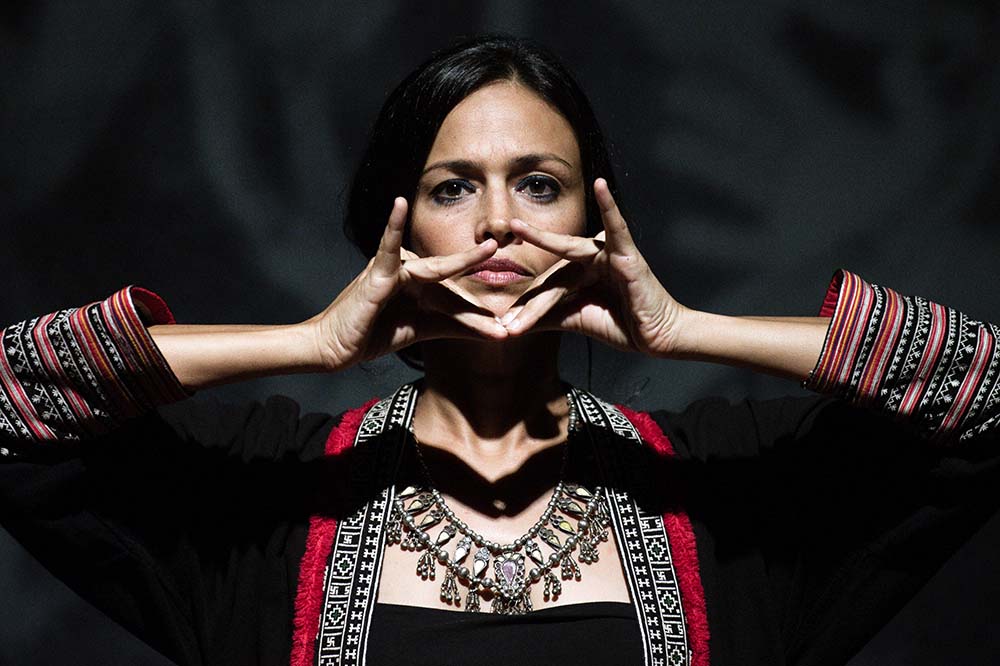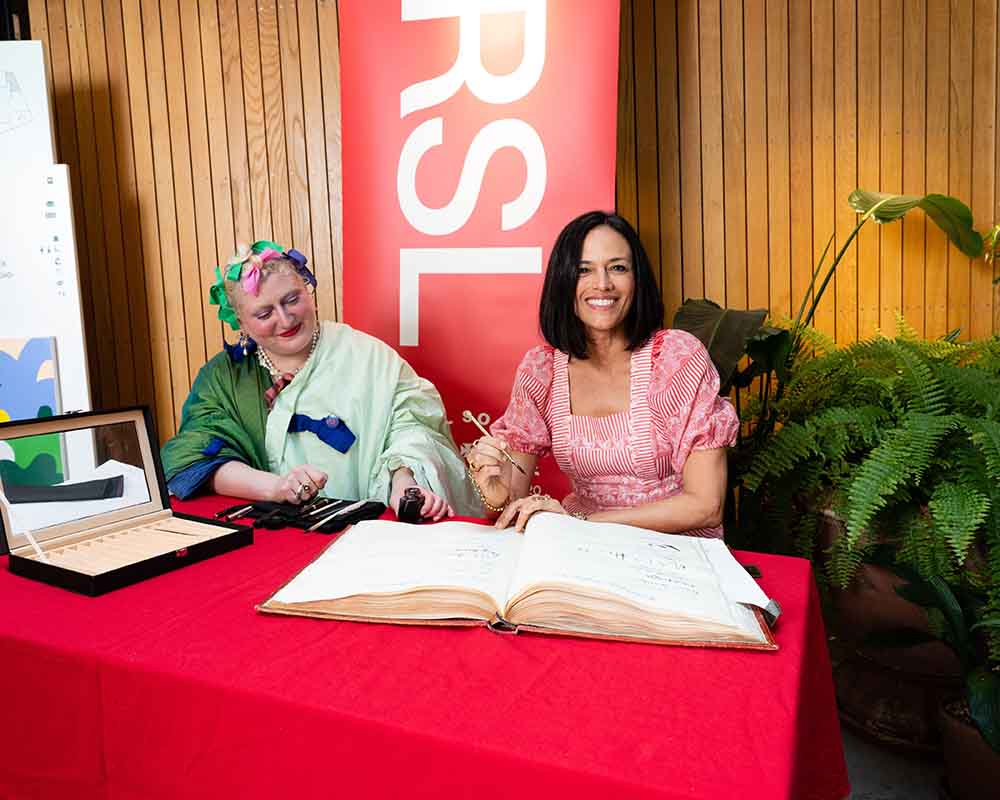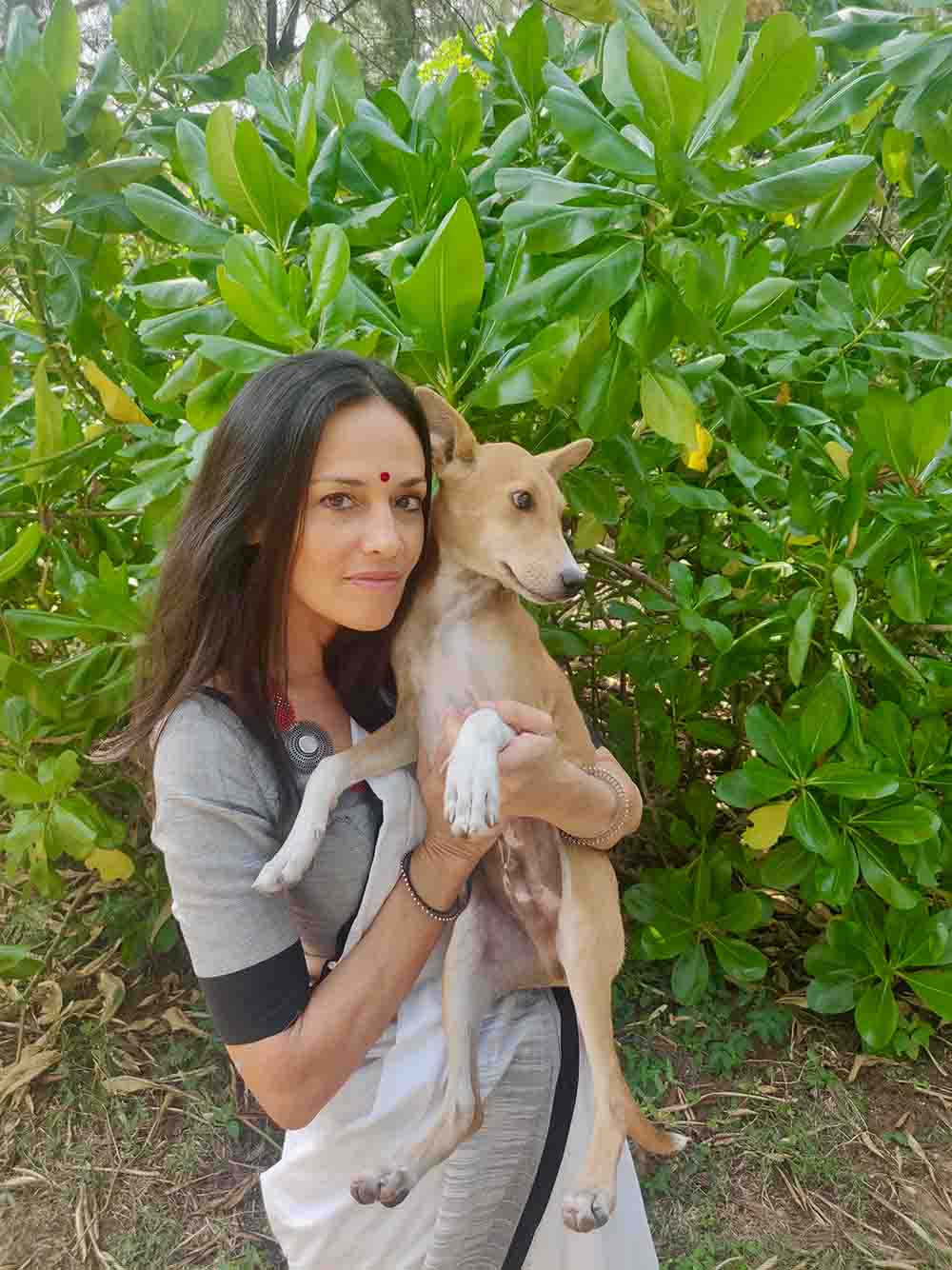Tishani Doshi’s motivations for why she writes are very specific. She’s not in the ‘bestseller’ race, or diluting her voice just to reach a wider audience. Her goal is to make meanings, and create connections between self and the world through her writing, especially her poetry. She knows that the niche form is not for everybody, but is happy to create an audience that comes along to hear what she says, and grows slowly. “It’s intimate and small but has its own power,” she says. Over a long-distance telephone call with HerCircle, Tishani discusses her recent anthologies ‘Girls Are Coming out of the Woods’ and ‘A God at the Door’, along with her ideas and interpretations of feminism. Snippets from the chat:
Lead Photo: Carlo Pizzati
Your poetry collection ‘Girls Are Coming Out of the Woods’ raises issues that women face such as violence. What was the impetus and process behind writing this series?
I think that for me, it always started with the body, which is where I begin as a dancer and a woman. One thing I’ve always struggled with is the strange dichotomy women must face, especially in India, where on one hand there is this great notion of the female principle or female power; culturally, and in terms of iconography, the idea that all life stems from women, we see it everywhere. On the other hand, the statistics of violence against women and girls is staggering. Many of the poems from ‘Girls Are Coming Out of the Woods’ were after Nirbhaya - Jyoti Singh - was attacked and subsequently died in 2012. That shift in thinking was about how do we hold all of this? How do we talk about women’s bodies, the violence, the power, and how do we do it in a way that doesn’t feel like a repetition of violence or degradation, but about reclamation, and about the difficulty of just holding these oppositions and dualities? There’s no answer, but I think what poetry can do is bring together things that are in contradiction, or things that are difficult and overwhelming and try to look at them aslant, with complexity, and with the possibility for some kind of transformation. So for instance, with the title poem itself, I would hope that people would see it as a battle-cry, a chant and incantation of resistance. The book is about many things, but certainly the issue of violence against women and girls emerges as the main concern of that particular collection.
Was the process of writing this collection organic, or did you actively seek out material and write towards a specific goal?
The way that these things work is quite mysterious. When I work, I don’t have a sense of what I’m working towards. I wish I were that kind of writer who has an idea for a project and then maps it all out before she dives in. But I’m very much that person who’s writing in order to find out what am I trying to grapple with, what am I trying to understand. These obsessions and concerns, of course they’re subconsciously there, but at a certain point you realise – ‘oh, this is the theme that’s running across the book’. I’ve been writing about bodies and violence and power before this particular book, across many forms, and a lot of it stems from the fact that because I have worked as a dancer, the body is this central place from where I begin any investigation. I’m more interested in emergence rather than setting out with objectives. I like to be surprised by my own subconscious.

Photo: Vifick Bolang
You've been an advocate for women's rights through your art - both writing and dance. Feminism as a concept has many interpretations today. What does the term mean to you?
I believe feminism is essentially looking at patriarchy as a structure that pervades every aspect of our lives, and that is invested in finding ways to change and dismantle that structure to create a world that is more just and equal. We’re at an important crossroads now with feminism and intersectionality, whether it’s gender, caste, sexuality, ecology – trying to have these important and difficult discussions about how there cannot be a one-size fits all set of values. But we also cannot allow this very individualistic interpretation of what feminism might be, which has led to feminism-lite, essentially allowing people to think they’re being very progressive by claiming they are feminists, while sacrificing nothing, challenging nothing, and having zero teeth. Feminism is in its spirit collective, and so even if it’s messy, that’s where the work must happen.
Earlier this year, you were elected a Fellow of the Royal Society of Literature. Can you tell us a little about this honour and what it means to you?
It was actually strangely moving. I’ve never been one for organisations or being part of a group. When you write, you’re working in a kind of solitary mode and with any luck you will create some friendships with other writers along the way, which keeps you company and creates a sense of community however long-distance. I’ve only ever had a writer’s circle a few times in my life – in the early days in Madras at the British Council, and in graduate school in America, but otherwise, you have to have these conversations with writers dead and alive through their work, and that has to be enough. So, to be invited to a Fellowship of writers, especially writers that have lived on your bookshelf – George Eliot, Charles Dickens, Jean Rhys – creates a sense of belonging, and perhaps even acceptance. Also, I looked around the room and saw a lot of friends and fellow writers, and I think the general feeling which resonated with us all was how lucky we felt to be able to do what we do, and to be honoured for it.
Did your Welsh identity also make it a more personal honour? The idea that this was a Fellowship from your mother’s birth country?
I’ve been straddling between this Welsh-Indian divide my whole life and both these places create a part of my emotional and creative landscape. Because I live predominantly in India, it sometimes feels as though my Welsh identity is side-lined, but the truth is that Wales has always been my elsewhere; every gap, every exploration, is Wales exerting itself and entering my life in some way. I lived in London in my early 20s and have returned almost every year to the UK, so I do have a strong connection – not just because I write in English, but a connection to the culture and history, and so in many ways, it does feel like a homecoming. My big dilemma was to decide which pen to sign the RSL register with – they had several options including TS Eliott’s pen, George Eliot’s pen, Lord Byron’s pen, Charles Dickens’s quill… I was all set for George Eliot but had a last-minute swerve and was enticed by Lord Byron’s most fantastically beautiful pen.

Photo: RSL and Adrian Pope
You dabble in several mediums as a writer - a poet, full-length novelist, columns and short stories. But one has a sense that poetry comes most naturally to you and fulfills you the most.
I am always a poet first. I began my writing life as a poet, poetry was what made me want to write. I’ve published two novels, a novella, and I love the essay form, but poetry is always the place I return to. Fundamentally, there is something about the form of poetry that excites me the most. It’s so small and contained and distilled, but is still capacious and can open up into a whole universe. There’s so much magic in poetry – our earliest beginnings with language begin in poetry – whether it’s rhyme or lullaby, but it also has ritualistic elements that are shared with prayers or chants. It shares boundaries with music in its lyricism and its meter, it can be conversational and utterly profound at the same time, and can leap across time with just a line. So I think there’s this basic wonder I have about poetry, that you put a bunch of words and syllables together and break the lines in a particular way, and the effect it has can be actually felt within the body, like a reverberation.
Your most recent collection, “A God at the Door,” was shortlisted for the 2021 Forward Prize. Can you tell us a little about this?
A lot of the poems from ‘A God at the Door’ were written during the pandemic. It was a really potent time for me. Those few years felt like an opportunity for change. We were all going through the same thing together across the world, the first time there was unity in anything, and it challenged us to think about the systems in our life, what we rewarded, what we didn’t, and what we might change. We also became aware of how much we needed people, communities, networks of support. It was a very alienating and lonely time, but people banded together in the ways they could to make it through, and it truly felt that some of those big structural changes could happen. I was thinking as well about the idea of what is holy anymore, for ways for the mundane to lead to the sublime, how we place ourselves in the world and what our connection was with each other. The relentlessness of the news cycle then, and the utter desperation was crushing, and so I was also looking at the idea of how we may find hope in any of this. I wanted my poems to have all the intensity of the lyric form but framed in the political now. And I kept coming back to the body as a site of renewal, the idea that any pilgrimage must lead us back to ourselves, our bodies.
Your primary identity has always been as a poet-writer, but tell us about your trajectory as a dancer.
I always think of dance and writing in tandem, because for many years before I was published, I was dancing. I had never aspired to become a dancer, it was totally accidental, but in a way, dance was the discipline and practice that allowed me to become a writer. I began working with the choreographer Chandralekha in 2001 and it was her last piece, “Sharira,” which I performed for 15 years, which is really quite a feat. To spend so much time on one piece, to age with it, and grow with it. I’m trying to write about this experience, because so much of it was touched with serendipity but it was also completely life-changing in every way. After we stopped our performances a few years ago, I experimented with a small choreography to accompany “Girls are Coming out of the Woods,” and I performed that for about five years, and recently performed it at the Sydney Opera House, so I think my relationship with dance is something I want to keep in some form in my life and I’m always trying to make space for it. The idea of leaving the dance behind and just having the language without performance, without music or movement, seems restrictive, I like the idea of being able to bring one discipline into the other, to have this fluidity and multiplicity of expression.

Photo: Carlo Pizzati
Can you tell us what you’re working on right now?
I’m working on some new poems at the moment. But there is no title, so I’m not yet at a point of being able talk about it. I also have an idea about a memoir and dance and the body, but I really need to stop talking about it and just write it.